Einaudi Center for International Studies
13th Frank H. Golay Memorial Lecture: Restitution in the Making of Southeast Asia Today
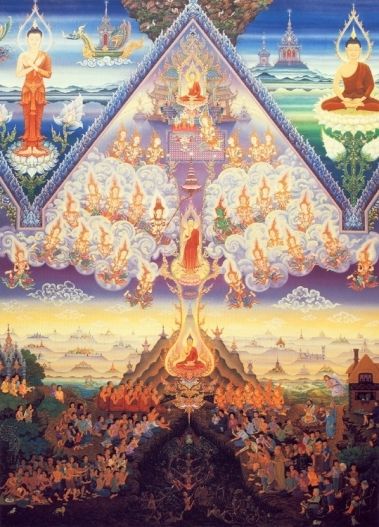
November 6, 2025
4:30 pm
Physical Sciences Building 120
Join us for a talk by Ashley Thompson, Hiram W Woodward Chair of Southeast Asian Art at SOAS University of London.
This lecture will take place at The Physical Sciences Building 120 with light reception to follow in Baker Portico. For questions, contact seap@cornell.edu. To attend via Zoom, please register here.
Established in 1992–93 to honor economist and Southeast Asia scholar Frank H. Golay, the Memorial Lecture reflects his enduring legacy of interdisciplinary research and commitment to the vitality of Cornell’s Southeast Asia Program.
Abstract
There is a revealing episode in the Buddha’s life story, one that, like many others is about the revelation that the vision of the Buddha entails, but which is also about the dubious virtuosity of replication, the revelatory power of return and techniques for expanding territorial dominion – and, that these are all of a piece. Following the successful show of the Twin Miracle at Savatthi, where the Buddha has beaten off rivals by proving his special powers to shoot water and fire from his body aloft in the sky, illuminating the cosmos for the gathered crowds, and twinning this brilliant self to provide at once questions and answers…, he travels to the heavens to teach his mother. The Buddha is missed dearly on earth. Some traditions have it that during his time away a replica was made of him – the first Buddha statue – to soothe a king grieving his absence. Entreated to return, the Buddha is supplied a red ruby ladder flanked by a gold and a silver one for his entourages. As beings watch, expectantly, the progress of the brilliant body down the rungs reveals the cosmos again: all of space and time is there for all to see. This vision is only fleeting, and the Buddha’s return bolsters a certain socio-political order organised around the dissemination of his image.
This talk will contemplate restitution in Southeast Asia today in the shadow of this story and with an anxious eye on our times. What affects does absence evoke, and how? What expectations arise in the progress of return, on whose part and why? What transformations take place in the comings and goings? How, when and where? Why and how do these processes constitute identifications at shifting scales, from the individual to the communal to the national to the regional to the international to the global to the cosmic, at once closing down histories and borders and carrying the potential for visionary unification? Do they reproduce Hindu-Buddhist hegemonies made as much in the ‘Sanskrit-Pali cosmopolis’ as in colonial knowledge production? Are we witnessing the reconsolidation of the commercial wing of an ever-expanding global conglomerate surveying borders between subject and object? Or are we catching glimpses of another time and space, where ‘animism’ might win the day?
About the Speaker
Ashley Thompson is Hiram W Woodward Chair of Southeast Asian Art at SOAS University of London. She maintains a sustained research focus on premodern Cambodian arts and literatures, and complements this with more punctual work on the contemporary period and the arts of the larger Southeast Asian region. Her research revolves around questions of memory, political and cultural transition, embodiment, sexual difference and subjectivity. She leads Circumambulating Objects: Paradigms of Restitution of Southeast Asian Art, and is the editor of a special issue of Art History on decoloniality in Southeast Asian arts fields, forthcoming 2025.
Additional Information
Program
Einaudi Center for International Studies
Southeast Asia Program
US, China Reach Framework Deal to Keep TikTok Operating

Sarah Kreps, PACS
Sarah Kreps, professor of government and policy, discusses TikTok’s future in the U.S.
Additional Information
Information Session: Fulbright U.S. Student Program
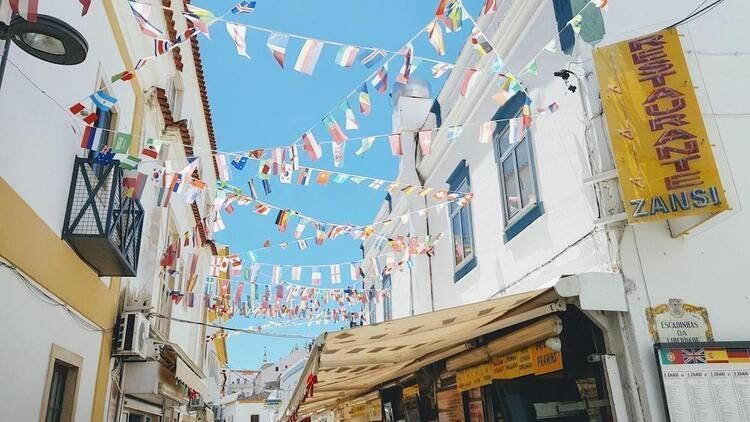
November 17, 2025
4:45 pm
The Fulbright U.S. Student Program supports U.S. citizens to study, conduct research in any field, or teach English in more than 150 countries. The program is open to graduate students, recent graduates, and young professionals. Undergraduate students who wish to begin the program immediately after graduation are encouraged to start the process in their junior year. Recent graduates are welcome to apply through Cornell.
The Fulbright program at Cornell is administered by the Mario Einaudi Center for International studies. Applicants are supported through all stages of the application and are encouraged to start early by contacting fulbright@einaudi.cornell.edu.
Register for the virtual session.
Can’t attend? Contact fulbright@einaudi.cornell.edu.
Additional Information
Program
Einaudi Center for International Studies
Reppy Institute for Peace and Conflict Studies
East Asia Program
Southeast Asia Program
Latin American and Caribbean Studies
Institute for European Studies
South Asia Program
Migrations Program
Institute for African Development
Southwest Asia and North Africa Program
Summer Program in India Info Session
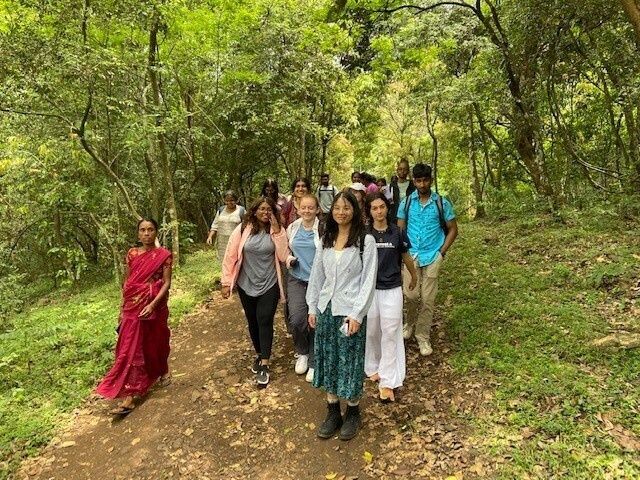
November 12, 2025
10:00 am
Uris Hall, G08
Are you interested in the intersection of mental health and culture, global health, and community engagement? Do you want to gain field research skills and learn about indigenous communities in South India’s beautiful and fragile Nilgiris Biosphere Reserve? If so, the Cornell-Keystone Nilgiris Field Learning Program might be for you!
Additional Information
Program
Einaudi Center for International Studies
South Asia Program
CANCELED - Spacing Palestine
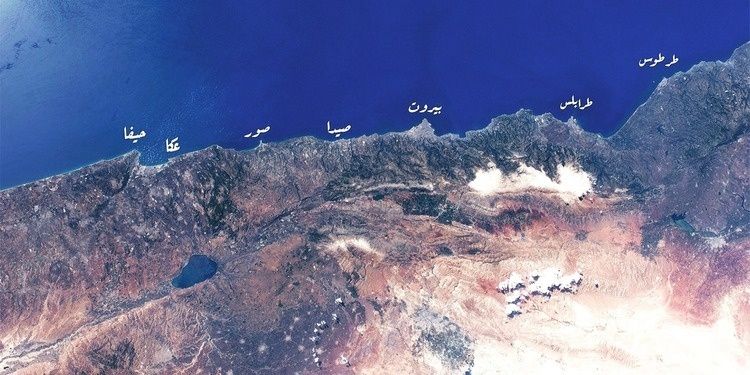
November 7, 2025
12:00 pm
Uris Hall, G08
This talk invites us to think about what it would mean if we considered Palestine from an a priori space of de-territorialization. Taking the examples of mapping and speculative infrastructures, it proposes to start from the Palestinian condition of fragmentation, distance, and disconnection, and move outward beyond the confines of territoriality.
Helga Tawil-Souri is an Associate Professor in Media, Culture and Communication, and Middle Eastern and Islamic Studies at New York University. Helga’s work deals with spatiality, technology, infrastructure, and politics in the Middle East, with a particular focus on contemporary Palestine. She is most recently co-editor of the book Producing Palestine: The Creative Production of Palestine Through Contemporary Media (I.B. Tauris, 2024).
Additional Information
Program
Einaudi Center for International Studies
Southwest Asia and North Africa Program
Monitoring and Accompanying Peacebuilding Processes in Post-Accord Contexts: The Case of Colombia
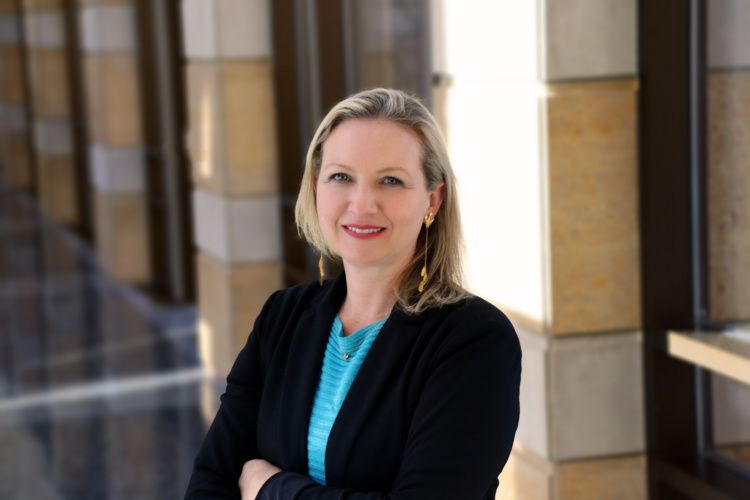
November 6, 2025
12:00 pm
Uris Hall, G08
This lecture discusses the concept of peace agreements as platforms for constructive social change, which requires authentic engagement and institutional transformations. It posits that signing peace accords is an important yet, alone and by itself, an insufficient step towards peacebuilding. Rather, the challenge of peacebuilding after wars lies in a robust implementation of the commitments reached at the negotiation table. Dialogue and inclusion during the negotiations needs to be permanent and continued after the signature. This lecture discusses these aspects in particular in the Colombian case, and highlights the role of third-party monitors in accompanying the process.
About the speaker
Josefina Echavarría Álvarez is professor of the practice and the director of the Peace Accords Matrix (PAM) program at the Kroc Institute for International Peace Studies, part of the Keough School of Global Affairs at the University of Notre Dame. She leads PAM’s researchers, faculty and staff in the South Bend campus, as well as PAM’s field units that carry out official monitoring of the implementation of peace accords in real time. In Colombia, PAM’s Barometer Initiative carries out official monitoring of the entire 2016 Final Peace Agreement between the Colombian government and the former FARC-EP guerrillas. In the Philippines, in partnership with Catholic Relief Services (CRS) Philippines, PAM-Mindanao provides monitoring methodology and technical assistance to measure the progress of the Normalization Annex of the 2014 agreement between the Government of the Philippines and the Moro Islamic Liberation Front (MILF). Josefina also directs the Legacy Project for “Preserving and Engaging the Digital Archive of the Colombian Truth Commission", which guarantees continued access to more than 200,000 files including audiovisual, non-textual knowledge and digitized documents compiled by the Colombian Truth Commission.
Host
Reppy Institute for Peace and Conflict Studies, part of the Einaudi Center for International Studies
Additional Information
Program
Einaudi Center for International Studies
Reppy Institute for Peace and Conflict Studies
Latin American and Caribbean Studies
Summer Program in India Info Session
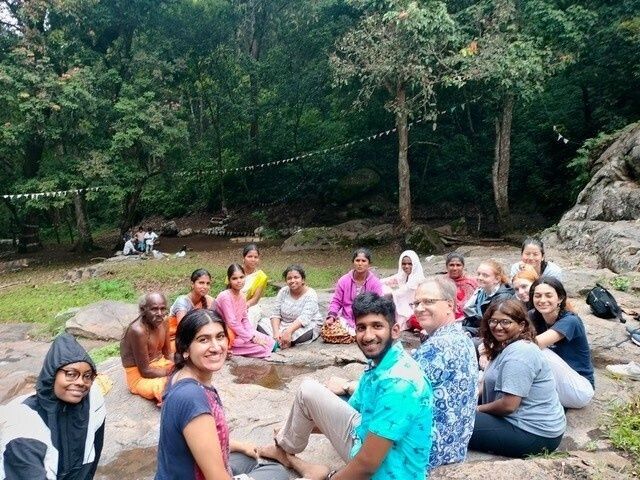
October 29, 2025
8:00 pm
Are you interested in the intersection of mental health and culture, global health, and community engagement? Do you want to gain field research skills and learn about indigenous communities in South India’s beautiful and fragile Nilgiris Biosphere Reserve? If so, the Cornell-Keystone Nilgiris Field Learning Program might be for you!
Additional Information
Program
Einaudi Center for International Studies
South Asia Program
Is (Cutting) International Aid Good?
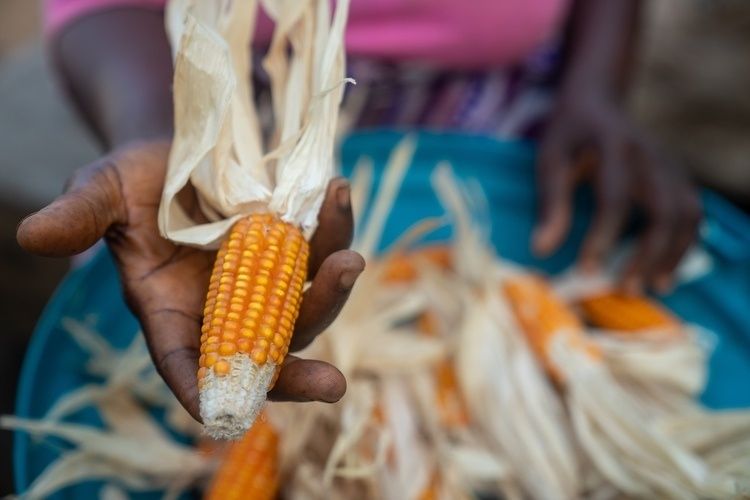
October 22, 2025
5:00 pm
Goldwin Smith Hall, G76, Lewis Auditorium
Lund Critical Debate
Since January 2025, the United States has slashed billions in international aid—and effectively dismantled the U.S. Agency for International Development (USAID), responsible for administering U.S. development and humanitarian aid around the world. In what has become the largest restructuring of aid in the nation’s history, thousands of UN-administered programs have also lost funding, disrupting critical programs and services, breaking supply chains, and leading to widespread closures and layoffs.
These sweeping cuts affect food security, global health, democratic governance, and more—and the stakes have never been higher. As the landscape of international aid evolves, the world faces new questions about the impact of aid on communities, what makes international aid effective—and how to move forward.
This year's Lund debate from the Mario Einaudi Center for International Studies brings together policy and practice experts for an unfiltered look at the future of international aid. Join Einaudi Center faculty Chris Barrett (Dyson/Brooks) and Muna Ndulo (Law) as they tackle these questions: Who benefits from aid? Do some types of aid work better than others? Should we pursue new approaches to international development? What are the best ways to take strategic action in the world while investing in America’s security, economy, and global position?
***
Interested in attending? Complete this RSVP.
***
Panelists
Chris Barrett is the Stephen B. and Janice G. Ashley Professor of Applied Economics and Management in the Dyson School of Applied Economics and Management and a professor in the Cornell Brooks School of Public Policy. He is coeditor-in-chief of the journal Food Policy and a frequent commentator and policy advisor on food security and agricultural economics. Barrett won the USAID Science and Technology Pioneers Prize (2013), among many other awards for research, teaching, and public outreach. Read recent Chronicle coverage of Barrett's research.
Muna Ndulo is the William Nelson Cromwell Professor of International and Comparative Law at Cornell Law School and an internationally recognized scholar in the fields of constitution making, governance and institution building, international criminal law, African legal systems, and human rights. Ndulo has served as consultant to the African Development Bank, World Bank, Economic Commission for Africa, United Nations Development Program, and other international organizations. He led the Einaudi Center's Institute for African Development from 2001 to 2020.
Moderator
Paul Kaiser is the Einaudi Center's practitioner in residence in fall 2025. Kaiser has extensive experience in international development, with a focus on sub-Saharan Africa, South Asia, and the Pacific Islands. His career spans roles at USAID, the Millennium Challenge Corporation, and World Bank. Previously, Kaiser taught political science and African studies at Mississippi State University and the University of Pennsylvania.
***
About the Debate
The Lund Critical Debate is a signature event of the Mario Einaudi Center for International Studies. Established in 2008, Einaudi's Lund Debate series is made possible by the generosity of Judith Lund Biggs '57.
Additional Information
Program
Einaudi Center for International Studies
Reppy Institute for Peace and Conflict Studies
East Asia Program
Southeast Asia Program
Latin American and Caribbean Studies
Institute for African Development
Institute for European Studies
South Asia Program
Migrations Program
Southwest Asia and North Africa Program
US Says 'Framework' for TikTok Ownership Deal Agreed with China

Sarah Kreps, PACS
Sarah Kreps, director of the Tech Policy Institute at Cornell University, raises concerns about data security and algorithm control in the proposed TikTok ownership deal.
Additional Information
Kidney Disease and Climate Change in Nicaragua’s Sugarcane Zone
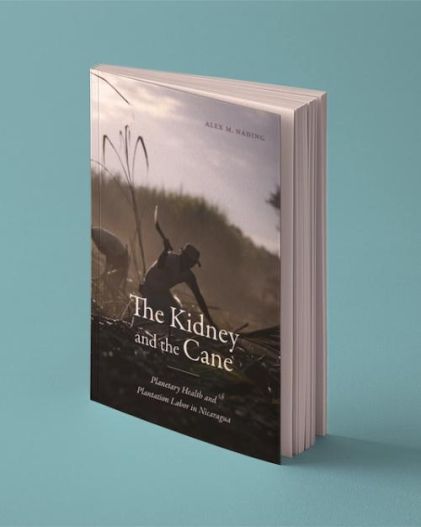
Alex Nading, LACS Director
“What is happening to the kidneys of sugarcane workers is not a result of climate change. It is climate change,” writes LACS director Alex Nading in his new book.
